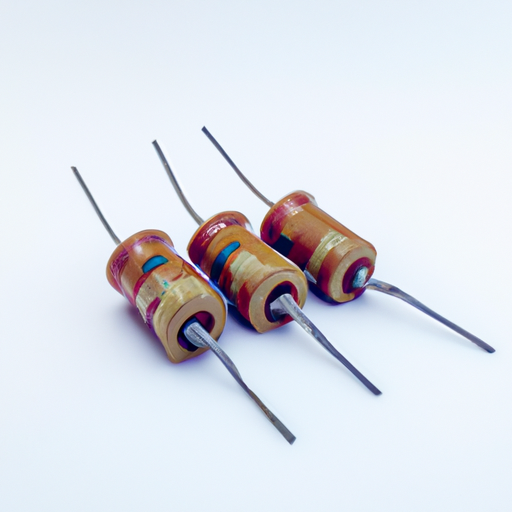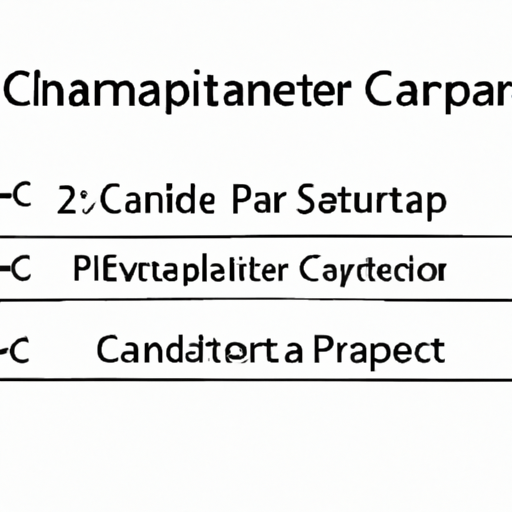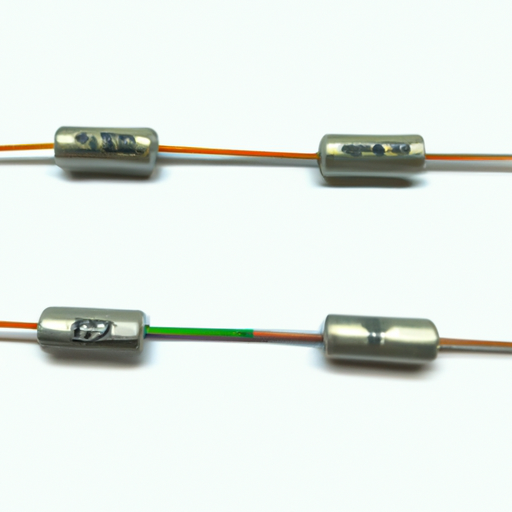What are the advantages of capacitor products?
What are the Advantages of Capacitor Products?
I. Introduction
Capacitors are fundamental components in electronic circuits, serving a variety of essential functions. Defined as passive electrical devices that store energy in an electric field, capacitors play a crucial role in the performance and reliability of electronic systems. From consumer electronics to industrial applications, capacitors are integral to the functionality of countless devices. This article aims to explore the advantages of capacitor products, highlighting their types, key benefits, specific applications, challenges, and future trends.
II. Types of Capacitors
Capacitors come in various types, each with unique characteristics and applications. Understanding these types is essential for appreciating their advantages.
A. Ceramic Capacitors
Ceramic capacitors are made from ceramic materials and are known for their small size and high stability. They are widely used in high-frequency applications due to their low equivalent series resistance (ESR) and high dielectric strength. Common applications include decoupling and filtering in power supply circuits.
B. Electrolytic Capacitors
Electrolytic capacitors are polarized components that offer high capacitance values in a relatively small package. They are commonly used in power supply circuits for smoothing and filtering applications. Their ability to store large amounts of energy makes them ideal for applications requiring significant energy storage.
C. Film Capacitors
Film capacitors utilize thin plastic films as the dielectric material. They are known for their stability, low loss, and excellent performance in high-frequency applications. Film capacitors are often used in audio equipment, power electronics, and timing circuits.
D. Tantalum Capacitors
Tantalum capacitors are known for their high capacitance-to-volume ratio and reliability. They are often used in applications where space is limited, such as in mobile devices and medical equipment. Their stable performance over a wide temperature range makes them suitable for critical applications.
E. Supercapacitors
Supercapacitors, also known as ultracapacitors, are designed for high energy and power density. They can store and release energy quickly, making them ideal for applications requiring rapid charge and discharge cycles, such as in regenerative braking systems and energy storage for renewable energy sources.
III. Key Advantages of Capacitor Products
Capacitors offer numerous advantages that make them indispensable in modern electronics. Here are some of the key benefits:
A. Energy Storage
One of the primary advantages of capacitors is their ability to store energy. Capacitors can quickly discharge and recharge, making them ideal for applications in power supply systems. This rapid energy transfer is crucial in stabilizing voltage levels and providing backup power during brief interruptions.
B. Filtering and Smoothing
Capacitors play a vital role in filtering and smoothing voltage fluctuations in power supply circuits. By absorbing excess voltage and releasing it when needed, capacitors help maintain a stable output voltage. This function is essential in reducing noise in signal processing, ensuring that electronic devices operate smoothly and efficiently.
C. Timing Applications
Capacitors are integral to timing applications, such as oscillators and timers. They store energy and release it at precise intervals, making them essential for clock generation in digital circuits. This timing capability is crucial for synchronizing operations in various electronic devices.
D. Voltage Regulation
Capacitors help stabilize voltage levels in circuits, enhancing overall circuit reliability. By providing a reservoir of charge, capacitors can smooth out voltage spikes and dips, protecting sensitive components from damage. This voltage regulation is particularly important in power supply circuits and sensitive electronic applications.
E. Size and Versatility
Capacitors come in compact designs, making them suitable for modern electronics where space is at a premium. Their versatility allows them to be used across various industries, from consumer electronics to automotive applications. This adaptability makes capacitors a preferred choice for engineers and designers.
F. Cost-Effectiveness
Capacitors are generally affordable compared to other electronic components. Their long lifespan and low maintenance costs further enhance their cost-effectiveness. This affordability makes capacitors an attractive option for manufacturers looking to optimize production costs while maintaining quality.
IV. Specific Applications of Capacitors
Capacitors find applications in numerous fields, showcasing their versatility and importance.
A. Consumer Electronics
In consumer electronics, capacitors are essential components in devices such as smartphones, tablets, and laptops. They help regulate power supply, filter signals, and enhance audio quality, contributing to the overall performance of these devices.
B. Automotive Industry
The automotive industry relies heavily on capacitors, especially in electric vehicles and advanced driver-assistance systems (ADAS). Capacitors are used in energy storage systems, regenerative braking, and power management, playing a crucial role in improving vehicle efficiency and safety.
C. Renewable Energy Systems
Capacitors are increasingly integrated into renewable energy systems, such as solar inverters and wind turbines. They help manage energy flow, stabilize voltage levels, and improve the efficiency of energy conversion processes, making them vital for the transition to sustainable energy sources.
D. Industrial Equipment
In industrial settings, capacitors are used in motors, automation systems, and power electronics. They help improve the efficiency and reliability of machinery, ensuring smooth operation in demanding environments.
V. Challenges and Considerations
While capacitors offer numerous advantages, there are also challenges and considerations to keep in mind.
A. Limitations of Capacitors
Capacitors have limitations, including voltage ratings and capacitance values. Exceeding these ratings can lead to failure or reduced performance. Additionally, capacitors can be sensitive to temperature changes, which may affect their reliability in extreme conditions.
B. Environmental Impact
The environmental impact of capacitors is a growing concern. Disposal and recycling of capacitors, especially those containing hazardous materials, pose challenges. Manufacturers are increasingly focusing on sustainable practices to minimize the environmental footprint of capacitor production.
VI. Future Trends in Capacitor Technology
The future of capacitor technology is promising, with several trends emerging.
A. Advancements in Materials and Design
Innovations in materials and design are leading to the development of more efficient and reliable capacitors. Researchers are exploring new dielectric materials and manufacturing techniques to enhance performance and reduce costs.
B. Emerging Applications in New Technologies
As technology evolves, new applications for capacitors are emerging. For instance, the rise of electric vehicles and renewable energy systems is driving demand for advanced capacitor technologies that can meet the unique requirements of these applications.
C. The Role of Capacitors in the Transition to Renewable Energy
Capacitors will play a crucial role in the transition to renewable energy sources. Their ability to store and manage energy efficiently will be essential in integrating renewable energy into existing power grids and ensuring a stable energy supply.
VII. Conclusion
In summary, capacitors are vital components in modern electronics, offering numerous advantages that enhance the performance and reliability of various devices. From energy storage and voltage regulation to filtering and timing applications, capacitors play a crucial role in a wide range of industries. While challenges such as environmental impact and limitations exist, ongoing advancements in technology and materials promise a bright future for capacitors. As we continue to innovate and integrate new technologies, the significance of capacitors in shaping the future of electronics and energy systems cannot be overstated.





